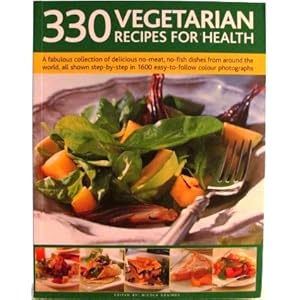Non-vegetarians have a tendency to
think that if you don’t eat meat than you must not have any protein in your
diet. This is completely untrue as there
are a number of non-meat, or plant based, proteins which provide the same
nutritional value as meat.
“Proteins are made up of amino acids, of which there are 20,
and eight of these need to be supplied by diet” (Graimes, 2010). A food that contains eight amino acids is
called a ‘complete’ protein – it is a high quality protein. For vegetarians the complete proteins are
eggs, dairy products and soya beans.
Other sources of protein, such as nuts, legumes, pasta, potatoes and rice,
do not contain all eight amino acids and are therefore considered ‘incomplete’
proteins. A balanced combination of
‘incomplete’ proteins can have similar benefits as a ‘complete’ protein.
I find non-vegetarians are overly concerned with the amount
of protein in a diet and they have this unfounded idea that large quantities of
protein are essential to good health.
However, in reality, most people consume more protein than they
need.
In her book on vegetarian diet and health, Nicola Graimes
says that protein deficiency is basically unheard of and, in fact, “an excess
of protein can be detrimental, rather than beneficial to health.” Graimes explains that high-protein foods,
which are a source of fat, often leach calcium from the body and thus increase
the risk of bone disease such as osteoporosis.
So, to sum things up on the protein issue, yes, there are
alternatives to meat protein, and no, you do not NEED meat to survive.



I knew you could get protein from plant-based sources, but I did not know that we can have protein-overload! I'm going to read more about overdosing on protein - all the more reason to become a vegetarian. Thanks Erin, you may just prevent me from getting osteoporosis one day ;)
ReplyDeleteHaha! You are welcome!! When you start researching it's actually surprising how misunderstood vegetarianism is.
ReplyDelete